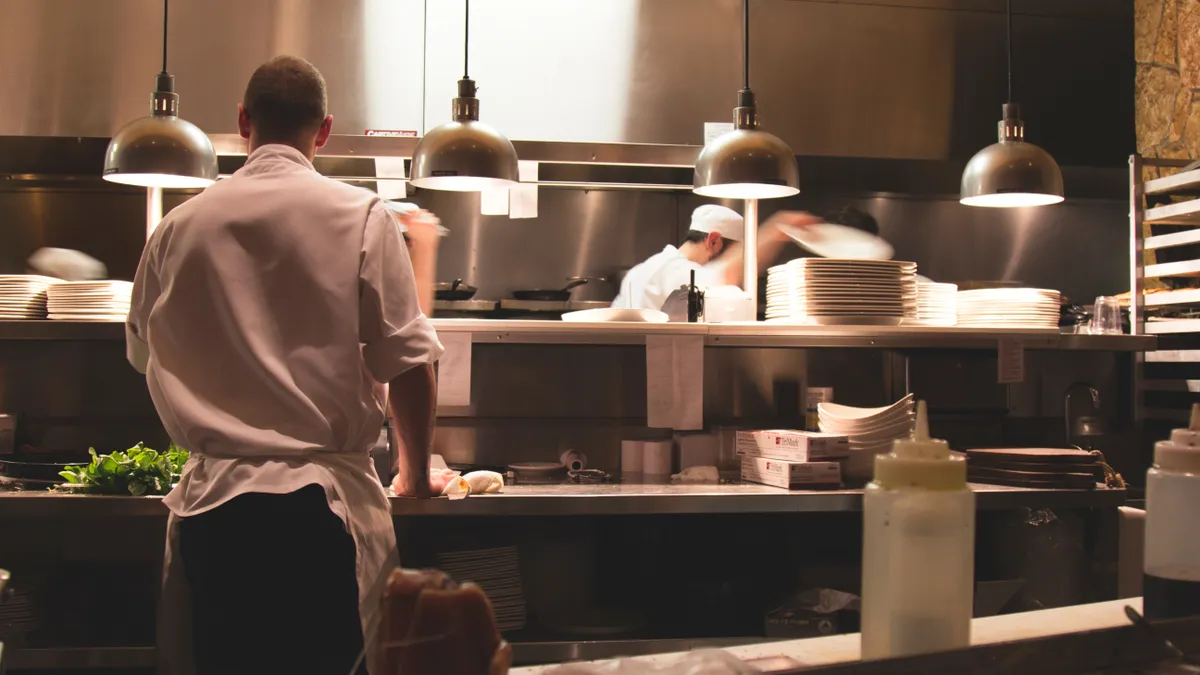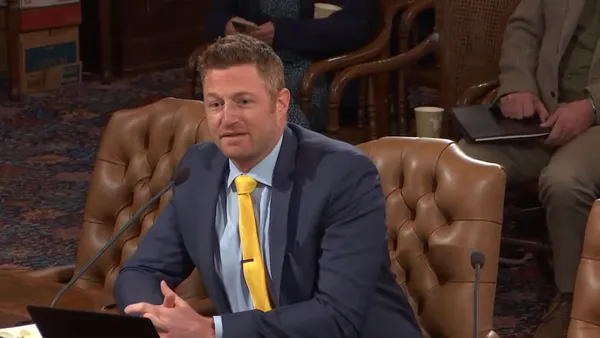UPDATE: April 20, 2018: The Foundation for New York's Strongest has announced the first winners of its $2,000 food waste microgrants. They were selected earlier this year and work is already underway with technical assistance from the New York State Pollution Prevention Institute.
Caterer Ox Verte will be purchasing a commercial freezer to help with long-term planning and mitigate spoilage. RoHo Compost will design and install "zero waste" stations for outdoor events to help reduce contamination through better sorting, while also providing public education. Trans Am Cafe will install a three-bin compost system with the goal of eventually selling finished material. White Moustache, a yogurt company, will purchase a branded freezer cart to sell popsicles at special events.
Interest from applicants was greater than expected. Based on submission, the foundation could open up parameters for future rounds to create opportunities for nonprofits, schools and cultural institutions.
Dive Brief:
- New York's Department of Sanitation (DSNY), through the Foundation for New York's Strongest, has launched a microgrant program to help small businesses cut down on the amount of wasted food they generate. $50,000 has been raised for this first round and businesses can apply for $2,000 individually or up to $5,000 jointly. Each grant package is estimated to be worth up to $15,000 when factoring in a state partnership, matching funds and in-kind support
- Potential uses for this grant funding could include back-of-house diversion or storage equipment, staff training, tracking software, transportation costs for food donation and plenty more. "It’s not meant to be a substitute for a long term operational resource allocation, but it's really meant to get something started," Elizabeth Balkan, executive director of the foundation and director of policy for DSNY, told Waste Dive. "I think there's a real appetite for making operational improvements that are beneficial to the sustainability of business operations as well as potentially cutting costs."
- Applications are due Jan. 8, 2018, and will be reviewed by a 17-member advisory committee comprising professionals from across the government, non-profit and private sectors. Eligible businesses must be located within the five boroughs, have 25 or fewer employees and net less than $500,000 per year. Winners will be announced in February 2018.
Dive Insight:
Since it was founded last year, the Foundation for New York's Strongest has been looking for new ways to engage the public around key aspects of the city's "zero waste" goals. That started with a designer fashion show to spotlight textile waste in September 2016 and was followed by the first-ever NYC Food Waste Fair in July.
The funding for this microgrant program came from that event and the two are seen as companions, in terms of their focus on small business solutions. Businesses that aren't covered by the city's current or proposed organics diversion mandate may still want to reduce their food waste, but don't know where to start. Especially for small food service or retail establishments, it can be hard to find storage for recovered food and source-separated organic material.
This challenge was recognized in "Zero Waste Design Guidelines" that were released last month with a focus on New York. Without a system in place, it's often seen as easier to just dispose of the excess food and move on. According to a new Natural Resources Defense Council report, restaurants and catering companies were some of the largest food waste generators in multiple cities — including New York. In recognition of those cost barriers, other cities are also looking at their own ways to help businesses rein in their food waste. Los Angeles just announced a similar food waste grant program last week.
The goal of this new program is to show businesses how small adjustments can change that situation, and then have the initial grantees serve as mentors for the next round. DSNY is already planning another Food Waste Fair for 2018, which could help set up an ongoing finance structure for future microgrants. Balkan also recognized the potential for grants to help fund small-scale organics processing infrastructure. She said that concept strengthens communities, creates jobs and is key to changing "the way that we culturally view waste and our responsibility in managing it."















